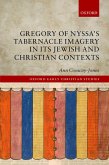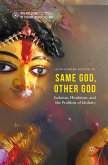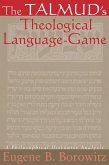Received opinion imagines Judaism and Islam as two distinct religions interacting in the centuries following the death of Muhammad in the early seventh century. Tradition describes the relations between the two groups using such tropes as "symbiosis." In this revisionist work, Aaron W. Hughes instead argues that various porous and marginal groups-neither fully Muslim nor fully Jewish-exploited a shared terminology to make sense of their social worlds in response to the rapid process of Islamicization. What emerged as normative rabbinic Judaism on the one hand, and Sunni and ShiEven the spread of rabbinic Judaism, especially at the hands of Saadya Gaon (882-942 CE), was articulated Islamically
. In the so-called "Golden Age" that emerged in places like Muslim Spain and North Africa, this "Islamic" Judaism could still be found in the writings of luminaires such as Bahya ibn Paquda, Abraham ibn Ezra, Judah Halevi, and Moses Maimonides. Drawing on social theory, comparative religion, and the analysis of original sources, Hughes presents a compelling case for rewriting our understanding of Jews and Muslims in their earliest centuries of interaction. Not content to remain solely in the past,
Shared Identities examines the continued interaction of Muslims and Jews, now reimagined as Palestinians and Israelis, into the present.
Dieser Download kann aus rechtlichen Gründen nur mit Rechnungsadresse in A, B, BG, CY, CZ, D, DK, EW, E, FIN, F, GR, HR, H, IRL, I, LT, L, LR, M, NL, PL, P, R, S, SLO, SK ausgeliefert werden.









